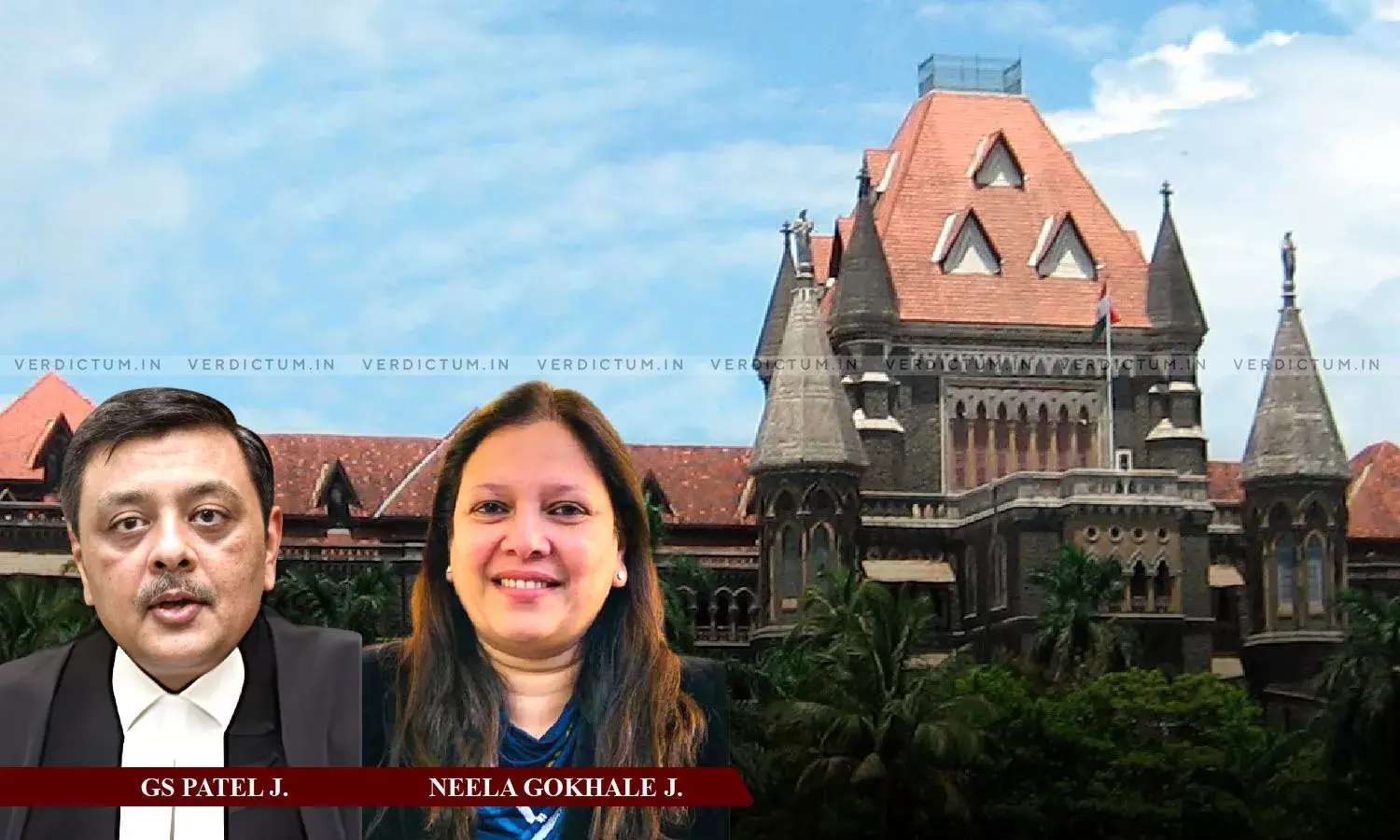Refusal To Grant Approval For Continued Service After Completion Of Probation Period By Employee Is Grave Travesty Of Justice: Bombay HC

While allowing a petition assailing the order passed by the Education Officer of the State of Maharashtra which refused to approve the continuity of service of the first petitioner as Assistant Teacher who was an employee of the second petitioner (the Management), the Bombay High Court held that the first Petitioner shall be deemed to have been appointed and confirmed as a teacher, having successfully completed the probation period.
“The only exception to the deemed appointment is if the Management finds the work or performance of the employee to be unsatisfactory during the probation period. The Management itself has sought approval of the continuity of service of the 1st Petitioner and hence we can fairly presume that his services are found to be satisfactory and without blemish”, added the Court.
The Division Bench comprising of Justice G.S. Patel and Justice Neela Gokhale observed that “equal opportunity should be provided to all aspirants as mandated under Articles 14 and 16 of the Constitution. However, an appointment on compassionate grounds offered to a dependent of a deceased employee is an exception to the said norm. A compassionate appointment is indeed a concession and not a right. But in the present case, the 1st Petitioner was granted a compassionate appointment in the year 2010 itself. He was regularized in the Group-D post. Acting in aid of the GR dated 20th January 2016, a change of his cadre to the teaching post was approved. His eligibility is not in dispute. Now having completed his probation period, refusal to approve continued service is a grave travesty of justice”.
Senior Advocate NV Bandiwadekar appeared for the Petitioner, whereas AGP NC Walimbe appeared for the Respondent.
In this case, it was averred that the first petitioner, despite having successfully completed the mandated probationary period of three years as Shikshan Sevak (trained graduate teacher) in the school run by the Management, the Respondents had refused the approval of continuity of service. The first petitioner’s father was permanently employed in the school of the second petitioner as a Peon and upon his death, the first petitioner was eligible to be appointed as a trained undergraduate teacher and hence sought compassionate employment as such. There was no vacancy in the teaching cadre at the relevant time and hence, the first petitioner accepted the post of junior clerk which was available in the school. He completed three years as Shikshan Sevak followed by continuing as Junior Clerk on a regular basis upon grant of approval by the Education Officer. In the meantime, the first petitioner had qualified B.A. (Marathi) and B.Ed. and became eligible for a teaching post. In consonance with Government Resolution dated Jan 20, 2016, he was appointed as Shikshan Sevak for a further period of 3 years as a lateral appointment from non-teaching to teaching, upon vacancy being available. The Education Officer gave his approval to the said appointment. However, later the Education Officer communicated the rejection of approval. Hence, the petitioner approached the High Court.
After considering the submission, the Bench found that Government Resolution (GR) dated Jan 20, 2016, inter alia provided that if a candidate, at the time of initial appointment, could not be appointed to Group-C post although he possessed the educational qualifications, for want of a vacancy and he was compelled to accept a Group-D post, upon availability of a vacancy of a Group-C post, his cadre could be changed provided he was willing to work in the post of Shikshan Sevak first.
Noticing that the first petitioner was willing, and he was so appointed, and the Education officer had admittedly granted approval and now the first petitioner had successfully completed the probationary period and was eligible to be granted continuity in the teaching post, the Bench observed that the Education officer misinterpreted the provisions of the GR which could not be permitted to renege from his earlier approval and refuse to grant continuity to first petitioner’s appointment.
The High Court stated that Section 5 of The Maharashtra Employees Of Private Schools (Conditions of Service) Regulation Act, 1977 (the MEPS Act) provided for certain obligations cast upon the Management of private schools, relating to filling up every permanent vacancy by the appointment of a person duly qualified to fill up the vacancy.
“The scheme of section 5 also broadly outlines the procedure to be followed before filling up such posts. It further provides that a person appointed to fill a permanent vacancy of an Assistant Teacher (Probationary) shall be on probation for three years”, added the Court.
The Bench clarified that once the Education officer has approved the appointment of the first Petitioner in the teaching post for a mandated probation period, upon successful completion of the same, the approval for continuity cannot be withheld by the Education Officer at this stage, on any other ground save and except that provided in the statute.
“Successive Education officers cannot render selective interpretation to provisions of the GR to grant or refuse approval to deserving employees”, added the Bench.
Therefore, observing that the first Petitioner has served the institute for as many as 23 years and no purpose will be served by depriving him of means of livelihood, the High Court directed the Education Officer concerned to approve the continuity of service of the first petitioner in the post of Assistant Teacher on regular basis and also directed for release of .grant in aid for payment of monthly salary as applicable.
Cause Title: Dinesh Sudam Patil and Anr. v. The State of Maharashtra and Anr. [Neutral Citation: 2023:BHC-AS:17859-DB]
Click here to read/download the Judgment

